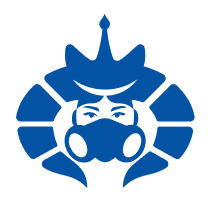Өнөөдрийн агаарын чанар
Тавтай морилно уу! Aгаарын чанарaa өдөр болгон шалгангаа агаарын бохирдлын тухай сүүлийн үеийн мэдээг цаг алдалгүй авч, хэрхэн утаа ялгаруулалтаа багасгах, эрүүл мэндээ хамгаалах тухай суралцаарай.
Улаанбаатар
Аймаг/хот сонгох
Улаанбаатар
Архангай
Баян-Өлгий
Баянхонгор
Булган
Дархан-Уул
Дорнод
Дорноговь
Дундговь
Говь-Алтай
Говьсүмбэр
Хэнтий
Ховд
Хөвсгөл
Өмнөговь
Орхон
Өвөрхангай
Сэлэнгэ
Сүхбаатар
Төв
Увс
Завхан
Хяналтын станц сонгох
1. 275-r tsetserleg 187
2. School No.17 174
3. ChD 12 khoroo 166
4. School 57 ChD11 158
5. 5 buudal 157
6. air V 153
7. Dundgobi_01(Цаг уур) 152
8. 31 r tsetserleg 152
9. ChD 8 khoroo 152
10. 126-r tsetserleg 151
11. Khailaast 140
12. 49-r surguuli 139
13. Dambadarjaa 113
14. 7-r khoroo 96
15. Chuluut sky villa 2 96
16. ChD 6 horoo 94
17. Mandakh Naran Tuv 94
18. 1-r khoroolol 89
19. Yarmag 88
20. ISU 87
21. Yarmag Garden City 86
22. Neo City 84
23. EU Delegation to Mongolia 82
24. МD-125 79
25. Czech Embassy Ulaanbaatar 75
26. French Embassy - Peace Avenue 73
27. bulgan_01(Цаг уур) 70
28. Gobisumber_05 (Цаг уур) 68
29. 17-r khoroo 66
30. Bumbugur 60
31. 22-r khoroo 56
32. MUST BEEC 53
33. Wrestling Palace 52
34. Khuvsgul_01 51
35. Baruun 4 zam 51
36. Urgakh naran 48
37. Mongol gazar 41
38. Tolgoit 37
39. Bogd Khaan Palace Museum 31
40. Misheel Expo 27
41. Sharkhad 16
АЧИ
Тэмдэг дээр даран агаарын чанарын дэлгэрэнгүй мэдээллийг харна уу
Агаарын чанарын индекс
0
Сайн
50
Бага бохирдол
100
Mэдрэг хүмүүс болгоомжил
150
Эрүүл мэндэд муу
200
Эрүүл мэндэд аюултай
300+
Эрүүл мэндэд хортой
Бодлого
БАРИМТЫН НЭР
ТӨРӨЛ
Агаарын чанарыг сайжруулах бүсийн шинэчлэн тогтоох тухай 2025
Захирамж, Тушаал
MNS 4585:2025 Агаарын чанар. Техникийн ерөнхий шаардлага
Нийтийн сонсгол, Стандарт
MNS 5976: 2025 Сайжруулсан хатуу түлш. Техникийн шаардлага
Нийтийн сонсгол, Стандарт
Агаар орчны бохирдлыг бууруулах үндэсний хөтөлбөр
Хөтөлбөр
Агаарын бохирдлыг бууруулах үндэсний хорооны орон тоонд өөрчлөлт оруулах
Нийтийн сонсгол, Тогтоол
Агаарын бохирдлыг бууруулах үндэсний хорооны тогтоол - Орчны бохирдлыг бууруулах үндэсний хорооны ажиллах журам
Тогтоол
Шийдэл
Мэдээ
Бидний ажил
Breathe Mongolia-д нэгдээрэй
Дэлхийн хаанаас ч шинжлэх ухаан, технологи, дизайн, бизнесийн ур чадвараараа Монголын агаарын бохирдолтой тэмцээрэй. Бидэнтэй ажиллахын 10 давуу талыг сонирхоорой

15
Улсaac

200+
Сайн дурынхан

20k+
Цагийн сайн дурын ажил
Нээлттэй ажлын байр
























